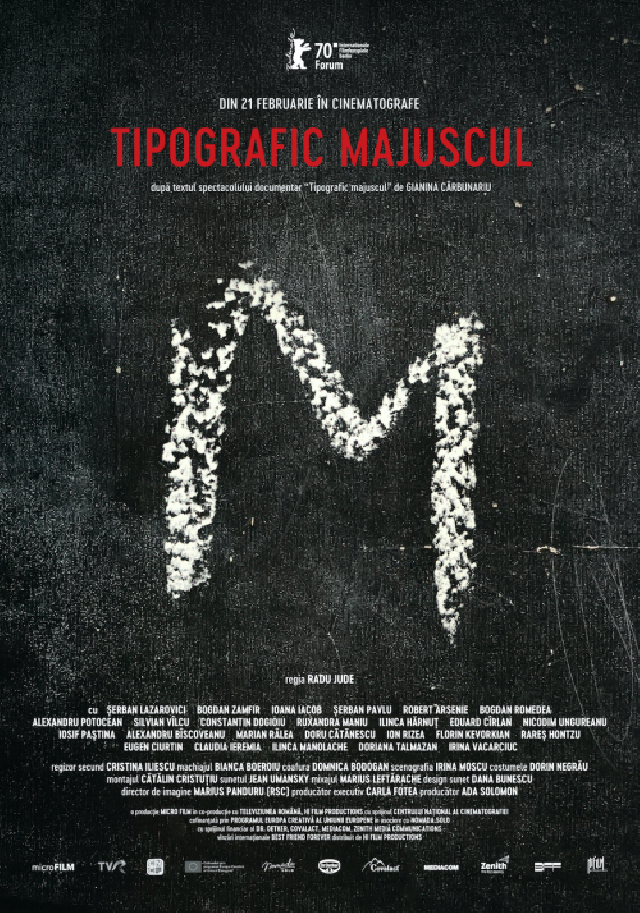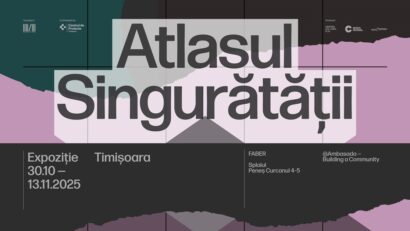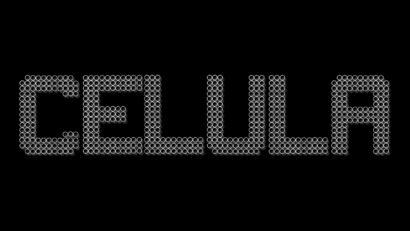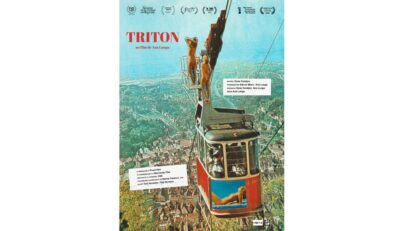Romanian filmmakers at the Berlin Film Festival
Three nominations for Radu Jude at the 2020 edition of the Berlinale

Monica Chiorpec, 01.02.2020, 13:00
The offer of the 2020 edition of the Berlin Film festival’s includes three new productions by the Romanian filmmaker Radu Jude. Cinema-goers will be regaled with Uppercase Print and The Exit of the Trains, to be premiered in the festival’s Forum section. As for the third production, a feature film, Sleepwalkers, it will be on the Berlinale Co-Production Market.
Radu Jude:
There are three titles all told, work is still in progress for the third one, it will be on a market which is very important for film projects, the Berlinale Market. The other two have been shortlisted for the Forum section. I have been the full-fledged director for Uppercase Print, a free adaptation of a play by Gianina Carbunariu, a play drawing on the Securitate file of teenager Mugur Calinescu. The other film, The Exit of the Trains has been directed jointly with historian Adrian Cioflâncă, who also came up with the idea for the film, thanks to his decade-long work, that of searching the archives in order to find materials about the Pogrom in Iasi, in 1941. He suggested that the two of us should make the film and I said yes.
The new forms of cinematographic expression have been included in the Berlinale’s Forum section. The two films by Radu Jude touch upon very sensitive issues in Romania’s modern history. Both productions have come up with a fresh and original perspective on those issues.
Radu Jude:
Not only is it a very important festival, but this section, the Forum section, that is, throughout the years has shortlisted radical, rather off-the-beaten-track productions, as both films are quite different from the usual, conventional narrative filmmaking pattern. Not that we have a problem with that pattern. They are, to a lesser or a greater extent, attempts at constructing or exploring reality with the help of a film, in a somewhat different manner.
Although they are not of crucial for him, Radu Jude admits the importance of the nominations and distinctions awarded as part of Europe’s great film festivals. He was happy to participate in this year’s edition of the Berlinale, and his cinematographic creed has been reconfirmed, on that occasion.
Radu Jude:
A flourishing cinematography means a great many things, among which this one as well. Of course, I’m sometimes being asked why those films are being made anyway, if the audience for them is not large enough. I don’t know if I have a clear answer for that, but what I do know is that sometime in the past, the director of the New York Film Festival, who also taught with a Film school in the States, a couple of years back had some of the great Iranian director Abbas Kiarostami’s films screened for his students. Suddenly, as back then there were rumors about a possible war against Iran, one of the students asked if the people in Kiarostami’s film were to be shelled. And that’s what cinema also means, providing a certain manner, a certain way and a certain language for a society, for a civilization. From that point of view, it is important. It is even more important if the films are successful, meaning that they can capture and also convey something significantly far-reaching regarding the society. Distinctions and nominations are important, and yet, even though they do have their role, they are not essential to me.
At European level, according to the Cineuropa web platform, more than 18,000 films have been produced over 2007-2017 in EU member states. The Romanian cinematography does have its place in that ranking, yet Radu Jude pointed at the problems that still deny us a place according to the European ranking, despite his participation in the Berlin Film Festival.
Radu Jude:
Romanian cinematography is still a low-key one, if we take into account the annual number of films produced here, as compared to such countries as France or even Poland or the Czech Republic. For our cinematography, distribution has become significantly limited. And by that I mean the distribution that is mainly made to malls. That is something very good, as those multiplex cinemas have decent screening conditions. But these are venues where commercial reasons come first, which is quite natural, and in this case certain forms of expression no longer reach their audiences. Education is another big problem, to that effect. I’m speaking about education in its wider sense, which still is undermined, underfinanced, but it’s also education in its narrow sense that I have in mind, cinematographic education, which does not exist, just like in other countries, in middle school or in high school. And obviously, that places us at the bottom of the table.
Uppercase print, an adaptation of the documentary play with the same title, stage-directed by Gianina Carbunariu, was premiered in Romania on February 21st, 2020. The cast for Radu Jude’s seventh feature film includes actors Şerban Lazarovici, Bogdan Zamfir, Ioana Iacob, Şerban Pavlu, Robert Arsenie, Bogdan Romedea, Alexandru Bîscoveanu and Alexandru Potocean. The Exit of the Trains will be premiered in the autumn of 2020. The producers were Ada Solomon, Carla Fotea and Radu Jude, jointly with historian Adrian Cioflâncă. Film shootings for Sleepwalkers, Radu Jude’s most recent feature film project, written for the screen by Radu Jude himself and produced by Ada Solomon, will begin in the summer of 2020. The 70th edition of the Berlin Film Festival is held between February 20 and March 1st.
(Translated by Eugen Nasta)






























